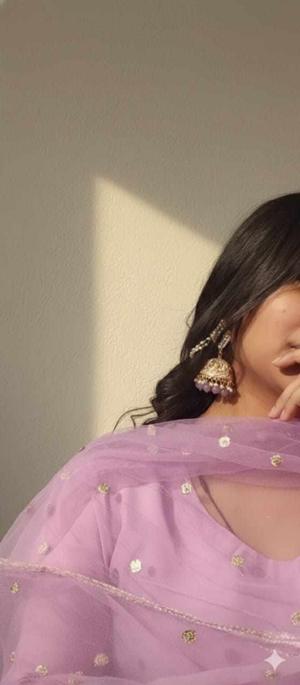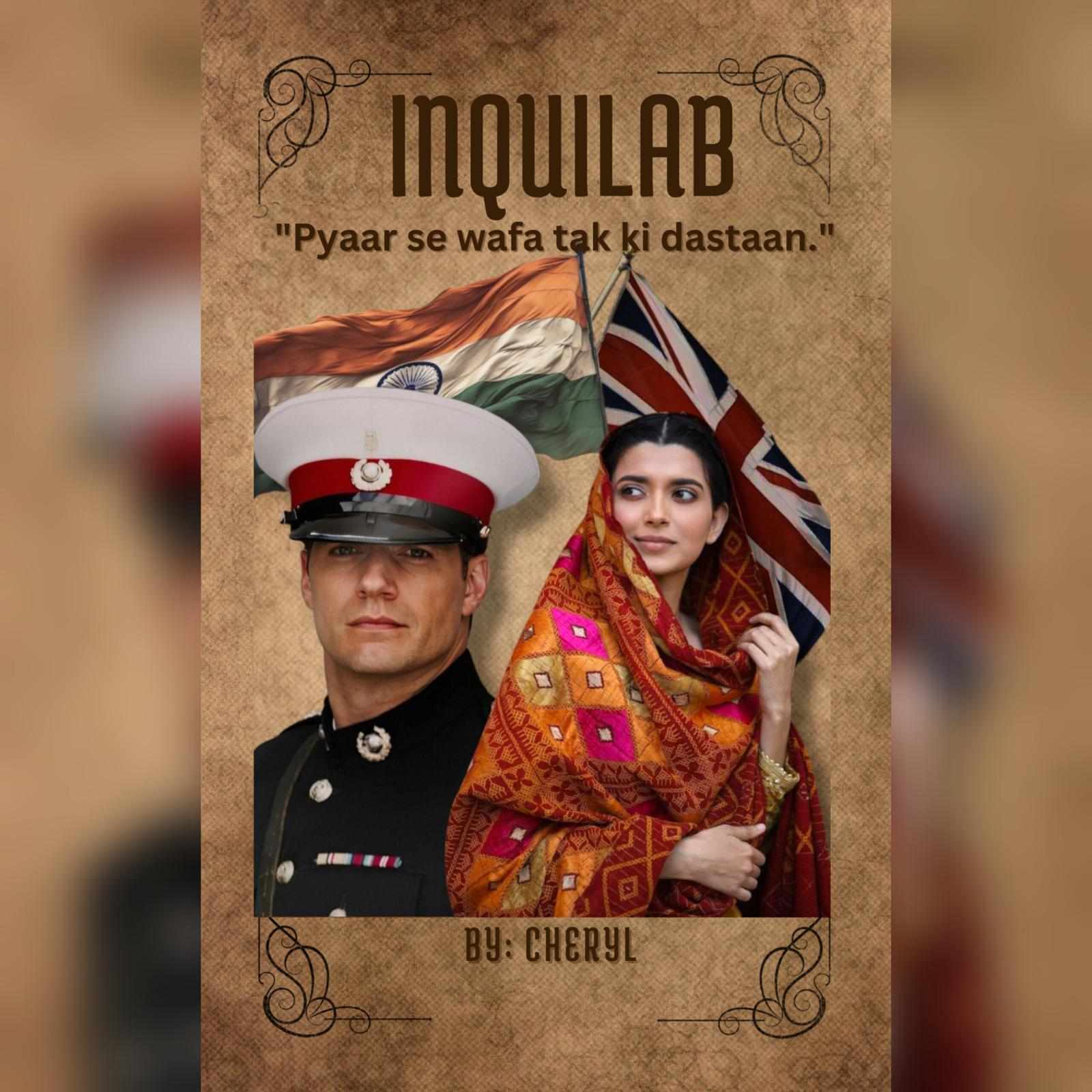
(A/N: First of all, an important announcement for all my old readers, yes, you already know how Naintara and Shekhar’s story ends, but nothing like that is going to happen in this book. 💫
This story is all about their journey, their struggles, and how they find their way to each other and yes, their happy ending. ❤️
So, to all my Mr. Chief Minister readers, please stop speculating 😅 and no spoilers for the new readers! 📚✨)
The winter morning sun fell pale and dusty over Delhi.
Fog curled low around the edges of the highway as Jagdish Raichand’s black Ambassador rolled out of the Raichand mansion gates.
In the back seat lay a neatly folded newspaper, a silver thermos, and a leather folder marked Raichand Industries Project Expansion: Fatehpur Beri.
He adjusted his spectacles, glancing once at the file, then looked outside.
Farms, brick kilns, and half-built godowns lined the road, a landscape on the verge of change.
His driver, old Brijmohan, spoke from the front seat. “Sir, we should reach Fatehpur Beri in about forty-five minutes.”
Jagdish nodded. “Hmm. Has Mr. Rajawat been informed?”
“Yes, sir. His man confirmed. They’ll be waiting at his house.”
“Good.” Jagdish leaned back, his mind already rehearsing the conversation.
He wasn’t a man used to being refused, not in the army, not in business. And certainly not when it came to his son’s dreams.
Fatehpur Beri appeared through the haze, sprawling fields, narrow lanes, and tall mango trees swaying gently in the breeze.
The Ambassador slowed as it entered the heart of the village. The roads here were narrower, uneven, lined with small mud houses with blue-painted doors and courtyard tulsi plants. The morning bustle had just begun, women fetching water from outside, men heading to the fields with sickles slung over their shoulders, and children chasing a deflated football through the dust.
Suddenly, the car jerked to a stop.
A bullock cart ahead had tipped slightly to one side, spilling sacks of grain across the road. A young boy stood beside it, looking helpless, the heavy bags too much for him to lift alone while the old rider sighed helplessly.
“Sir, we’ll be delayed,” Brijmohan muttered, leaning on the horn.
“Wait,” Jagdish said, raising a hand. “No need to honk. These are village roads, they move at their own pace.”
He pushed the door open and stepped out, his leather shoes crunching over the dry earth.
Before he could even approach the boy, someone else was already kneeling beside the fallen cart, a young woman in a simple sky-blue salwar-kameez, her dupatta pinned neatly over her head, bangles clinking softly as she lifted the sacks one by one with surprising ease.
“Careful,” she said gently to the boy. “Hold the corner steady, or it will fall again.”
Her voice carried the calm patience of someone used to helping without expecting anything in return.
Together, they lifted the last bag back onto the cart, the boy murmuring a shy “thank you” before running off.
When she turned, Jagdish found himself watching her, not in the way a stranger studies a face, but the way an old soldier notices grace in small acts of kindness.
“Are you all right, kaka ji (uncle)?” she asked softly, tucking a loose strand of hair behind her ear.
“Yes,” Jagdish replied, adjusting his coat. “I should be the one asking you that. That was heavy work.”
She smiled faintly. “It’s nothing. Helping each other is how we live here.”
There was something deeply rooted in her manner, no trace of hesitation, no hunger for praise. Just simple, effortless humility.
“Do you live nearby?” he asked, curiosity slipping into his voice.
She nodded. “Just a little ahead…”
Brijmohan called from the car interrupting them. “Sir, we should continue.”
Jagdish gave her a polite nod. “Thank you for the help. You’ve made this old man feel quite useless today.”
She smiled, hands folded respectfully. “It’s a blessing to serve someone elder, kaka ji. Safe travels.”
As he stepped back into the car, Jagdish found himself glancing once more in the rear-view mirror.
The girl was still there, helping the old man right the cart completely before walking away with quiet dignity.
He didn’t know her, nor did he think he’d ever see her again.
But something about her, the simplicity, the softness, the unspoken strength, stayed with him long after the car rolled toward the Rajawat haveli.
The car turned off the main street, stopping before an old haveli with arched verandas and red sandstone walls.
A man stood outside, dressed simply in a cream kurta and a wool shawl draped over one shoulder. His posture was straight, his face lined with experience but not defeat.
Kulbhushan Rajawat.
He greeted the General with folded hands. “Namaste, Mr. Raichand. You came yourself? I was told one of your officers would visit.”
Jagdish stepped forward, extending his hand firmly. “When it’s about my son’s dream, I prefer not to send others.”
Rajawat’s eyes flickered, a trace of respect there, though his expression remained calm. “Please, come in.”
The haveli’s drawing room smelled faintly of old wood and freshly brewed tea.
Rajawat poured tea himself, not letting a servant do it. “I must say, your son is quite the talk of Delhi these days.”
Jagdish smiled lightly and came straight to the point. “He’s worked hard. Perhaps too hard. This project means the world to him.”
“I can imagine.” Rajawat set the cup down gently. “I’ve heard of it, the industrial park?”
“Yes. It’ll bring jobs, development, and growth. Fatehpur Beri could be part of something far bigger.”
Rajawat nodded, patient, polite. “I don’t doubt that. But I’m afraid that patch of land you’re interested in…..”
“.....is under your name,” Jagdish finished for him, tone still cordial. “I’m aware. We’re prepared to pay well above market value.”
Rajawat smiled faintly. “Money isn’t the problem, Mr. Raichand. You see, some things you can’t price.”
Jagdish’s brow furrowed. “If it’s about emotion, I can understand that. But you must know progress doesn’t wait for sentiment.”
Rajawat leaned back, his gaze steady but unprovoked. “And yet, what are we if not men built on sentiment, General? And now what I am telling as father only a father can understand not a businessman like your son.”
He paused for a moment before continuing.
“No matter how much money you offer me, I can’t sell this land. My late wife once sold her jewelry to buy it, and everything I have today was built on that foundation. It was her last wish and now it’s mine, that this land remains the only legacy I pass on to our only daughter. This land is for her future, and I will not give it to anyone else.”
For a moment, neither man spoke. The ticking of an old wall clock filled the silence.
Jagdish sat back slowly, the weight of Kulbhushan’s words settling over him heavier than any business negotiation ever could.
It was a language he understood, not the language of contracts and deals, but of promises made in silence and kept long after the world had forgotten them.
“I respect that,” Jagdish said quietly, his tone shifting from persuasion to sincerity. “And I believe you. A man who honours his wife’s last wish is not someone who can be moved by numbers on a cheque.”
Kulbhushan’s expression softened, though the steel in his resolve did not waver. “I know my refusal might inconvenience you, Mr. Raichand and I apologise for that. But this land is more than soil to me, it’s the story of my family. It’s the only thing my daughter will truly inherit.”
Jagdish nodded once, deeply. “I understand. Believe me, I do. I have children, and I know what it means to want to leave behind something that belongs entirely to them.”
For the first time since they’d sat down, the two men looked at each other not as buyer and seller, not as industrialist and landowner but as fathers.
“Thank you for hearing me with respect,” Kulbhushan said gently, rising to his feet. “Most men in your position wouldn’t bother.”
“Respect,” Jagdish said as he too stood, “is the least I can offer to a man who stands this firmly for his child.”
Rajawat walked him toward the door. “If ever there is any other way I can support your project, short of giving away this land, I will not hesitate. But on this matter, my answer will never change.”
“I believe you,” Jagdish said again, offering his hand but before Kulbhushan could take his hand for a handshake, a familiar voice floated in from the courtyard soft, polite, and tinged with the warmth of home.
“Kaka ji… Were you coming to our house?”
She appeared at the veranda entrance, sunlight falling gently on her angelic face. The same girl. The same calm, graceful presence that had stopped his car not long ago.
“Your daughter?” A slow smile touched Jagdish’s lips s he asked Kulbhushan before answering her. “I didn’t know either, beti… I just found out myself.”
Kulbhushan followed his gaze, a softness in his voice. “Yes. Naintara.”
“Pretty name. Completely suits her.” Jagdish mumbled praising her beautiful eyes. “She helped me earlier,” Jagdish said with a chuckle. “I thought I’d never see her again, yet here we are.” and Kulbhushan's eyes softened with pride.
Naintara stepped forward, folding her hands in a respectful namaste as she mumbled the same before saying. “It was nothing, kaka ji. Anyone would’ve done the same.”
“Perhaps,” Jagdish said warmly, “but not everyone would’ve done it with such kindness.”
For a moment, the air around them shifted, the conversation no longer about land, but about the simple, invisible bonds that tied lives together before anyone realised it.
Jagdish rested a gentle hand on her head, blessing her in the way a father would bless his own daughter. “May the world be kind to you, beti. And may you always stay as you are humble, strong, and pure-hearted.”
“Thank you,” she said softly, her voice barely above a whisper.
As Jagdish stepped back into his car and the engine hummed to life, he turned once more toward the haveli.
Kulbhushan Rajawat stood tall at the gate, his daughter by his side, the legacy he had spoken of, living and breathing beside him.
And for the first time since he had left Delhi that morning, Jagdish realised that some battles were not meant to be won.
Some were meant to teach a man that even power must bow before love.
Back in the car, Jagdish remained silent for most of the drive to Jaipur.
The winter sun was shining but still not as warm as it seems, casting long amber shadows over the fields as the Ambassador hummed steadily along the highway. His mind replayed the morning’s conversation again and again.
Kulbhushan’s unwavering resolve, the weight in his eyes when he spoke of his daughter, and the warmth in Naintara’s smile when she had bowed for his blessing.
“Sir?” Brijmohan asked gently, glancing at him through the rear-view mirror. “You’re very quiet. Should I put on the radio?”
Jagdish shook his head, his gaze fixed on the road rushing past. “No. I’m just thinking.”
“About the land?” Brijmohan asked without hesitation. Being an old employee, he is now more of a family than just a mere driver.
“About everything,” he murmured. “About how some dreams require patience… and how some walls are not meant to be broken with force.”
Brijmohan smiled faintly. “You’ll find a way, sir. You always do.”
Jagdish didn’t reply, but his lips curved into a small, thoughtful smile. “Perhaps. But this time, Brijmohan… the path might be different.”
The rest of the journey passed in companionable silence until the car finally entered Jaipur by late afternoon. The city was a burst of pink sandstone and winter sunlight, buzzing with camel carts and tourists crowding the bazaars.
As soon as Jagdish arrived, he took care of the work he had come for, since he had to leave for Delhi the very next day.
The following morning, Jagdish sat in the drawing room of his hotel suite, sipping his tea while flipping through The Times of India. And there, sprawled across the front page, was a photograph that made him pause mid-sip.
“Raichand Heir Linked to Bollywood Starlet!” screamed the headline.
The picture showed Shekhar, impeccably dressed in a charcoal suit, stepping out of a gala event hand-in-hand with Aaradhya Kapoor, one of Bombay’s most talked-about actresses. Cameras had caught them laughing, leaning a little too close, and the article below was full of speculative gossip: “Are they dating? Will the next wedding after Delhi’s CM be his friend’s?”
Jagdish sighed heavily and set the paper aside. He knew better. He knew that Aaradhya was nothing more than an old friend, someone Shekhar had grown up with, someone he trusted but didn’t love. Yet, something about the photograph unsettled him because there was a different glint in Aaradhya’s eyes in this picture.
“Sir?” Brijmohan asked, entering the room with his coat. “The car is ready for departure.”
Jagdish folded the newspaper and tucked it under his arm. “Let’s go.”
As they descended the hotel steps, he spoke more to himself than to anyone else. “That boy has the world watching his every move… and he still acts like it’s only a game.”
“He’s young, sir,” Brijmohan offered cautiously.
“That’s precisely the problem,” Jagdish replied, sliding into the back seat. “Youth believes every mistake can be fixed later. But one wrong impression… and everything you’ve built can crack beneath you.”
Brijmohan remained silent, knowing his employer wasn’t really seeking an answer.
Hours later, as the Ambassador rolled down the Delhi highway once again, the winter sky had begun to bruise with shades of violet. The fields stretched wide and golden on the horizon, the same fields that had sparked a negotiation he still couldn’t shake from his mind.
“Sir, we’ll be in Delhi by nightfall,” Brijmohan said, glancing at the clock.
Jagdish looked up from the window, his expression unreadable. Then, after a long pause, he spoke quietly but firmly.
“Stop in Fatehpur Beri before we head back.”
Brijmohan blinked in surprise. “Fatehpur Beri, sir?”
“Yes.” His tone left no room for question. “There’s someone I need to see again.”
The driver nodded and turned the wheel towards the familiar dirt road leading into the village, unaware that the decision made in that single moment would change the course of the Raichands’ story forever.














Write a comment ...